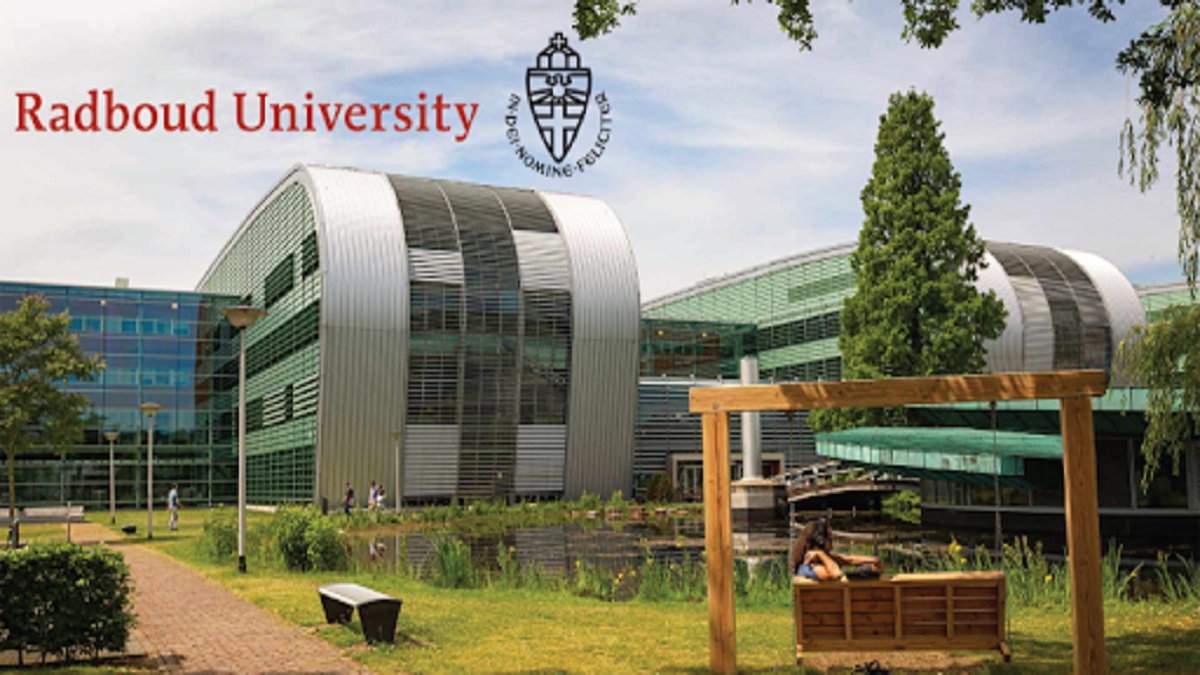
As Full Professor of Microbial Ecophysiology (Microbiology cluster) you will develop an exciting and high-impact research line in a subfield of microbial ecophysiology. Your research focuses on the physiology of microorganisms with environmental or societal relevance.
Microbes make up a large part of the life-sustaining system of the biosphere, which is why they deserve our attention. Investigation of the diversity of microorganisms in our ecosystems contributes to our understanding of human impact on the natural environment. At RIBES, you can make an environmentally and socially relevant contribution as a Full Professor researching the physiology of microorganisms.
As Full Professor of Microbial Ecophysiology (Microbiology cluster) you will develop an exciting and high-impact research line in a subfield of microbial ecophysiology. Your research focuses on the physiology of microorganisms with environmental or societal relevance. As a full professor, you will complement, strengthen and expand the research, education and management of the Microbiology cluster.
You will be given the opportunity to establish your own research line(s) in microbial ecophysiology. You will perform and supervise cutting-edge and internationally competitive research and you will be expected to apply for grants. In addition, you will collaborate on existing research lines of the cluster, and supervise/co-supervise support staff, postdoctoral researchers and PhD candidates. You will be encouraged to firmly link the research programme with those of your colleagues from the Radboud Institute for Biological and Environmental Sciences (RIBES) and outstanding groups in and outside the Netherlands.
Exciting opportunities exist to further develop, innovate and teach microbiology courses that address topics such as microbial physiology, metabolism or host-microbe interactions. By doing so, you will create your own niche in the Biosciences curriculum and strengthen the Microbiology BSc programme and MSc specialisation. Typically, you will coordinate one BSc and one MSc course, supervise students during their BSc or MSc internship, and teach general BSc and MSc courses.
You will manage a sizeable group of academic and non-academic staff and foster diversity and equity. In addition, you will manage the Microbiology cluster together with the other staff members and take turns in chairing the cluster as the Chair rotates among the full professors every 4 years. You will have the opportunity to participate in the management of RIBES, the Education Institute of Biosciences and Faculty of Science. You should be supportive of the fact that an effective organisation of research and education is pivotal for a university and that key managerial roles are part of a full professorship.
Microbiology research contributes to resolving society’s great challenges in terms of climate change, healthy ecosystems, biodiversity, water management, resource recovery and sustainable health. Part of our mission is to explore the societal impact of our research. By carefully designing a strategy for engagement with societal or industrial stakeholders, we can raise awareness, which in turn may lead to new funding opportunities and collaborations.
Profile
- You have a strong research profile in microbial ecophysiology and a proven track record in obtaining funding for your research group.
- You embrace collaboration, and are motivated to explore and initiate collaborations within the Microbiology cluster, within RIBES and between RIBES and other national and international institutes.
- You have an excellent track record of teaching experience and qualities, including experience with education design, coordination and innovation, and you have a basic teaching qualification or are willing to acquire one.
- You are comfortable with, and enthusiastic about, contributing to microbiology courses at the BSc and MSc level. You have demonstrable teaching abilities and a solid teaching strategy in microbial ecophysiology, including both a short-term and long-term vision on the development and innovation of courses and the BSc and MSc degree programmes in Microbiology.
- You have excellent leadership and human skills, and in due time you will be ready and willing to take up leading managerial roles within research and education.
- You have the competence and enthusiasm to reach out to the scientific community, as well as to the general public and educational community. In addition, you are keen to contribute to a more sustainable society through potential applications of your research.
- You are comfortable with a 40/40/20 (research/education/management) position, which is typical for professors at RIBES.
We are
The Radboud Institute for Biological and Environmental Sciences (RIBES) aims to perform world-leading research in order to understand the response of the natural environment to human impact. RIBES is working on the overarching research mission called ‘Towards Healthy Ecosystems’, which has four focus areas: I. Macronutrients and chemicals of emerging concern, II. Physical conditions: understanding responses and adaptation mechanisms to stressors, III. Biodiversity decline and recovery of ecological communities, and IV. Mitigation of greenhouse gasses. With this knowledge, RIBES contributes to mitigating ecosystem degradation and finding solutions to restore the natural environment. RIBES research encompasses three major groups of organisms (microorganisms, plants and animals) and spans nearly all levels of biological organisation. The institute is organised in three clusters: Ecology and Physiology; Environmental Science; and Microbiology.
The Microbiology cluster comprises an enthusiastic and devoted team of academics who closely collaborate within a flat organisational structure. Harmonious and productive collaboration and synergy are key to our success. Our Faculty, Institute and Cluster have state-of-the-art equipment for sequencing, light and electron microscopy, a large bioreactor facility as well as infrastructure for anaerobic microbiology, and facilities for biochemical, molecular and physiological work. Our mission is to conduct research at the forefront of microbial ecology and physiology with the main aim of understanding the diversity of microorganisms responsible for the biogeochemical cycling of nitrogen and carbon (methane). In close collaboration with other RIBES groups and external partners, we pay special attention to host-microbe interactions. In addition, in close collaboration with stakeholders and industrial and other partners, we contribute to the development of microbial applications in sustainable drinking water production and wastewater treatment systems in order to remove nitrogen, methane and micropollutants (CECs). We focus on four research themes: 1. Nitrogen cycle microbiology, 2. Carbon/methane cycle microbiology, 3. Host-microbe interactions, and 4. Bioremediation. We collaborate on these four themes with our expertise in microbial metabolomics, microbial cell biology and biochemistry, environmental microbiology, microbial biotechnology and microbial ecophysiology (this vacancy).
Radboud University
We want to get the best out of science, others and ourselves. Why? Because this is what the world around us desperately needs. Leading research and education make an indispensable contribution to a healthy, free world with equal opportunities for all. This is what unites the more than 24,000 students and 5,600 employees at Radboud University. And this requires even more talent, collaboration and lifelong learning. You have a part to play!
We offer
- Employment for 0.8 – 1.0 FTE.
- The gross monthly salary amounts to a minimum of €5,864 and a maximum of €8,539 based on a 38-hour working week, depending on previous education and number of years of relevant work experience (salary scale H2).
- An appointment as an Associate Professor with the potential to grow into the role of Full Professor is also possible. An Associate Professor will be employed as an Associate Professor level 2 (salary scale 13, maximum gross monthly salary of €6,444) or Associate Professor level 1 (salary scale 14, maximum gross monthly salary of €7,079), depending on your scientific track record and experience.
- You will receive 8% holiday allowance and 8.3% end-of-year bonus.
- It concerns a permanent employment.
- You will be able to use our Dual Career and Family Care Services. Our Dual Career and Family Care Officer can assist you with family-related support, help your partner or spouse prepare for the local labour market, provide customized support in their search for employment and help your family settle in Nijmegen.
- Working for us means getting extra days off. In case of full-time employment, you can choose between 29 or 41 days of annual leave instead of the legally allotted 20.
Additional employment conditionsWork and science require good employment practices. This is reflected in Radboud University’s primary and secondary employment conditions. You can make arrangements for the best possible work-life balance with flexible working hours, various leave arrangements and working from home. You are also able to compose part of your employment conditions yourself, for example, exchange income for extra leave days and receive a reimbursement for your sports subscription. And of course, we offer a good pension plan. You are given plenty of room and responsibility to develop your talents and realise your ambitions. Therefore, we provide various training and development schemes.
Would you like more information?
For questions about the position, please contact Prof. Laura van Niftrik, Chair of the Microbiology cluster at laura.vanniftrik@ru.nl.
Practical information and applications
You can apply until 8 May 2022, exclusively using the button below. Kindly address your application to Prof. Laura van Niftrik. Please fill in the application form and attach the following documents:
- A letter of motivation.
- Your CV.
- A research statement, including a description of how your research will align with the research programme of the Microbiology cluster and RIBES (at most 2 pages).
- A teaching statement, including your long-term vision on teaching and education innovation (at most 2 pages).
- A leadership statement on supervision, management and community efforts (e.g. diversity programmes; at most 1 page).
The first round of interviews will take place online on 30 and 31 May, and 3 June. You would preferably begin employment on 1 January 2023.
We can imagine you’re curious about our application procedure. It offers a rough outline of what you can expect during the application process, how we handle your personal data and how we deal with internal and external candidates.

We drafted this vacancy to find and hire our new colleague ourselves. Recruitment agencies are kindly requested to refrain from responding.





